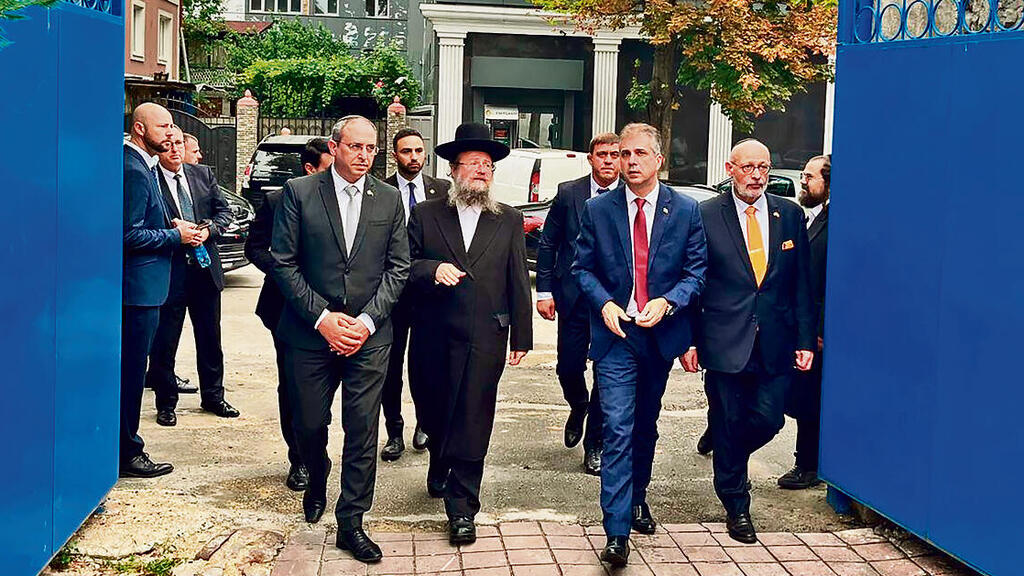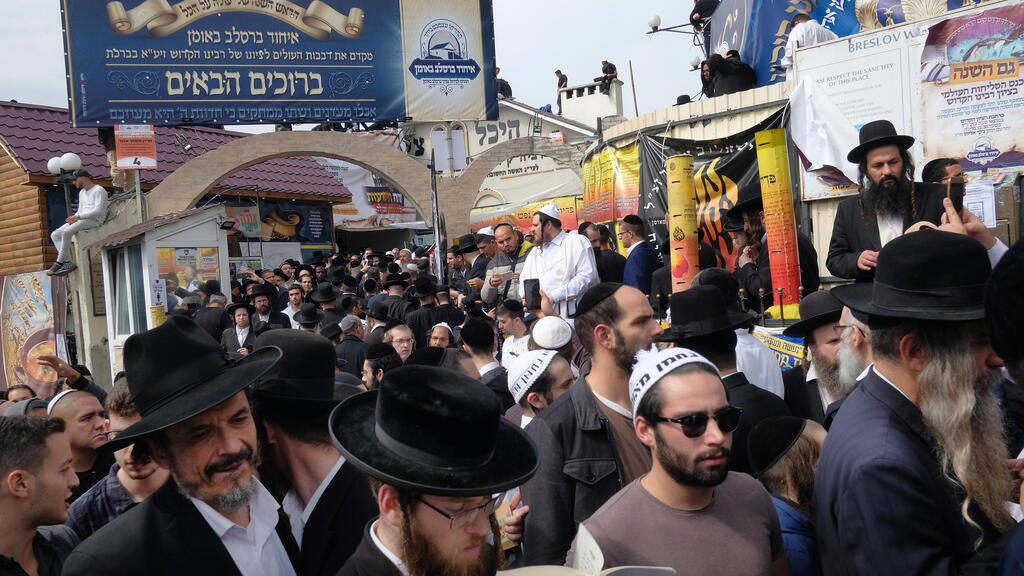Since the outbreak of the war between Russia and Ukraine in 2022, the traditional pilgrimage of tens of thousands of Breslov Hasidic Jews, who customarily celebrate Rosh Hashanah in Uman, has become increasingly dangerous.
Due to tension in the region, flights to and from the European country are no longer possible, and last year the Jewish pilgrims, along with thousands of other Israelis who traveled to experience the holidays at Rabbi Nachman of Breslov’s grave, required government aid to complete their journey.
In recent days, however, it has been reported that no government ministry has been willing to take responsibility for managing the project for 2024. Last year, Jewish pilgrims flew to Ukraine's neighboring countries - Moldova, Poland, Hungary and Romania - which have small border crossings that aren’t equipped to handle tens of thousands of people arriving at once.
Last year, the Jerusalem Affairs and Heritage Ministry, under Knesset lawmaker Meir Porush, took charge of the mission, coordinating with Israel’s National Security Council and Israeli ambassadors in the countries in order to boost border personnel, allowing Israelis to reach Rabbi Nachman's grave before the holiday.
The project, which cost 4 million shekels, included setting up crowd control facilities at the borders, having Hebrew-speaking representatives to manage the areas, assisting with coordinating procedures with local governments and security forces, providing guidance to travelers, establishing a control room in Israel and helping direct crowds to designated border areas for crowd control and inspections.
This year, however, the pilgrims might be left without support, potentially leading to long delays at border crossings that aren’t equipped to handle the influx.
In recent weeks, Moldova’s Chief Rabbi Pinchas Zaltzman, responsible for mediating between the Israeli and Moldovan governments, held a series of meetings with various officials from the Moldovan Interior Ministry (which oversees border crossings), as well as with the police and other security agencies.
At the same time, meetings were held in Israel with representatives from the Foreign Ministry, Finance Ministry, intelligence agencies and others to bridge gaps and prepare for the pilgrimage to Uman. No progress has been made on the matter at the time of writing.
Zaltzman warned that there’s an even greater need for a governmental coordinator this year due to the rise in antisemitism since the outbreak of the war in Gaza. "Last year's cooperation, managed by the Jewish community in Moldova, prevented friction and issues at the border crossings almost entirely," Zaltzman said.
"This year especially, when a dramatic increase in the number of worshippers traveling to Uman and passing through Moldova is expected and given the tense and challenging security situation for Israelis and Jews, the State of Israel has a responsibility to ensure the safety of its citizens,” he added. “The focus on the war in Israel is preventing decision-makers from addressing the issue of Uman, which could develop into a significant problem without proper early planning and preparation."




